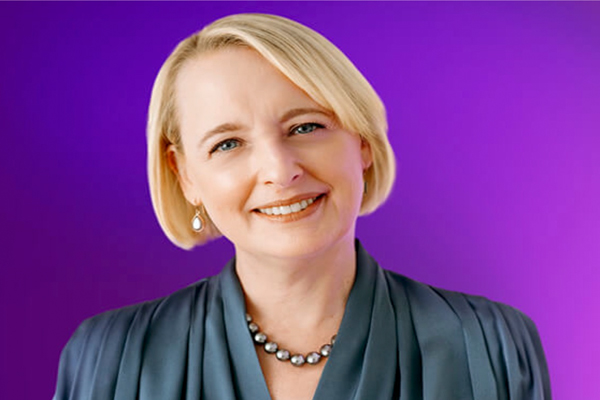A record number of companies have disclosed data for Bloomberg’s 2022 Gender-Equality Index (GEI), revealing that firms are increasingly committed to ESG data reporting.
That’s 20% year-over-year increase, demonstrating a growing commitment to gender equality and recognition that the global business community can lead the charge for meaningful change; by committing to more transparent reporting and disclosure of social data. The 418 companies included in this year’s Bloomberg GEI (up from 325 last year) are headquartered in 45 countries and regions; and represent a combined market capitalisation of US$16 Trillion.
The GEI helps bring transparency to gender-related practices and policies at publicly-listed companies around the world; increasing the breadth and depth of environmental, social, governance (ESG) data available to investors.
ADDRESSING GENDER EQUALITY ISSUES
“The changing nature of work due to the pandemic has highlighted the importance of addressing gender equality issues in a rapidly-evolving global workforce,” stated Peter T Grauer, Chairman of Bloomberg. “The Bloomberg Gender-Equality Index recognises companies that are maintaining a strong focus on providing an inclusive work environment that supports the evolving needs of employees; and retains the competitive strengths gained through gender diversity, which is increasingly critical in this challenging business environment.”

The GEI framework scores companies across five key pillars. They unclude female leadership and talent pipeline; equal pay and gender pay parity; inclusive culture; anti-sexual harassment policies; and pro-women brand. There are also expanded areas of information to support the broader goal of providing more robust ESG data to investors. For example, GEI disclosure data now contributes to Bloomberg’s EEO-1 data; including race and ethnicity demographics from US companies that disclose this as part of their reporting requirements to the Equal Employment Opportunity Commission.
In terms of disclosure, the ability to measure, analyse, and track data over time is essential for companies as they develop and implement approaches towards diversity and inclusion. The 2022 GEI Insights Report published today, outlines the breadth and depth of data incorporated in calculating the GEI; and illustrates the impact that concerted gender-equality efforts can have in the workplace. Examples include work on corporate governance and culture, as noted in the GEI this year.
CLOSING THE GENDER GAP
One area of vibrant activity entails work on diversity in the boardroom and across all levels of the corporation. On average, GEI members’ boards comprise 31% of women; and 72% of the member companies have a Chief Diversity Officer or an executive with the primary responsibility of diversity and inclusion. These companies have an average of 39% of women in revenue-producing roles; and more than half (61%) require a gender-diverse slate of candidates for management positions.
“Today’s business leaders have the opportunity to drive progress on gender equality for years to come,” commented Patricia Torres, Global Head of Bloomberg Sustainable Finance Solutions at Bloomberg. “The GEI framework helps companies assess their progress relative to their peers, and in relation to their own goals. In turn, the GEI data gives investors a comprehensive dataset to help evaluate how best practices in gender equity are contributing to company performance across a variety of factors.”

EMBRACING A CULTURE OF INCLUSION
Another key area involves the recruiting, hiring, and retention processes at member firms. On average, GEI members hire more women; 83% of these firms have a direct strategy for recruiting women; and 66% of them conduct global gender-based compensation reviews. These companies are also more likely to adopt family-friendly policies. For example, 75% of member companies offer on-site lactation rooms for new mothers; and 59% of them provide childcare subsidies or other financial support.
“Programmes, policies and practices are now table stakes, but lasting change comes from creating a culture of equality where everyone feels they belong – the accelerator of creating 360˚ Value for all stakeholders,” said Julie Sweet, Accenture Chair and CEO. “The GEI is a valuable tool that puts a spotlight on progress and opportunities to improve.”
This year’s GEI data shows that communities are also benefiting from inclusive corporate policies. More than half (63%) of member companies sponsor financial education programmes for women; and 65% sponsor programmes dedicated to educating women in STEM.

GEI STANDARD FRAMEWORK
The GEI’s standardised reporting framework allows investors to compare how companies around the world are investing in women in the workplace, the supply chain, and the communities in which they operate. Submitting data by using the Bloomberg gender reporting framework is voluntary and has no associated costs.
The GEI is a reference index and is not for use as a financial benchmark and is not ranked. The firms included in this year’s index scored at or above a global threshold established by Bloomberg to reflect a high level of disclosure and overall performance across the framework’s five pillars. Click here to access the list of companies included in the 2022 Bloomberg GEI.
Check out last year’s story on the Bloomberg GEI here. Another recent report revealed that the largest US companies are disclosing their ESG and diversity and inclusion policies at historically high levels. Click here to read more.




































